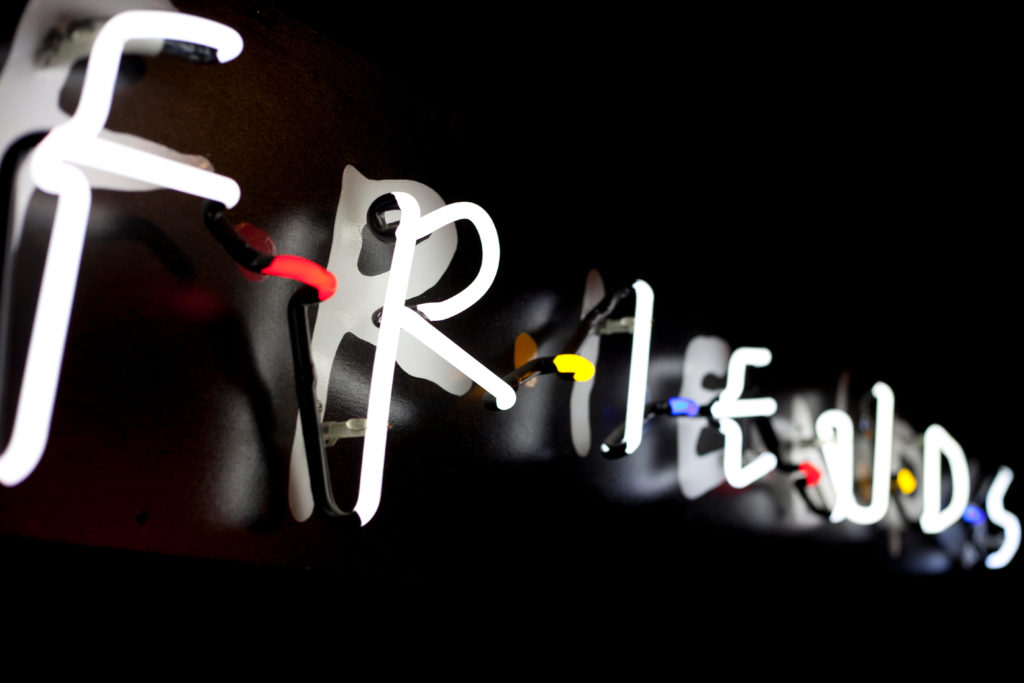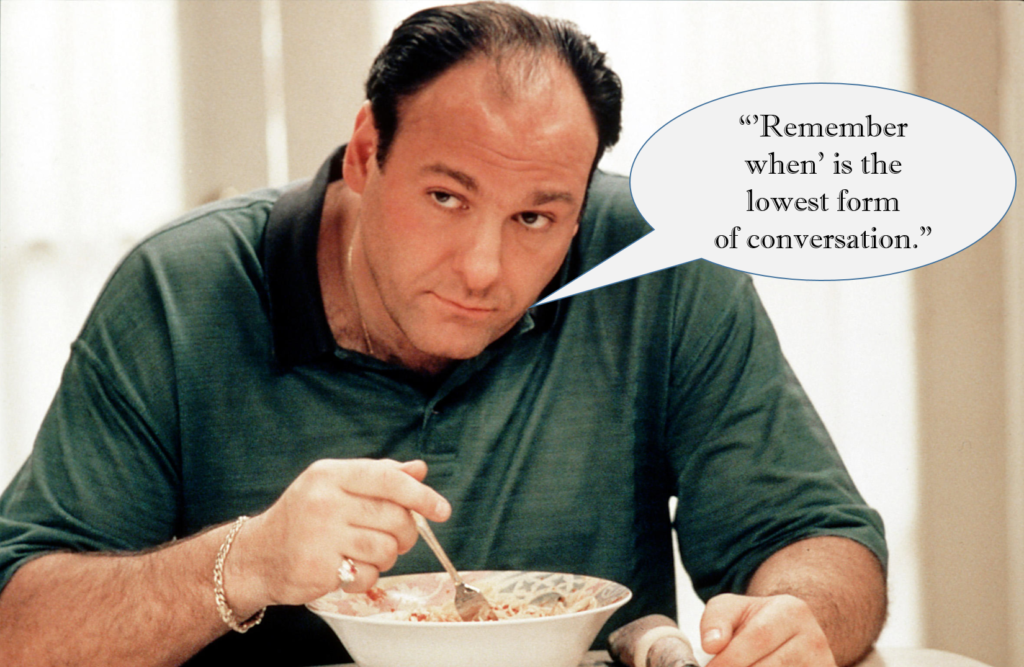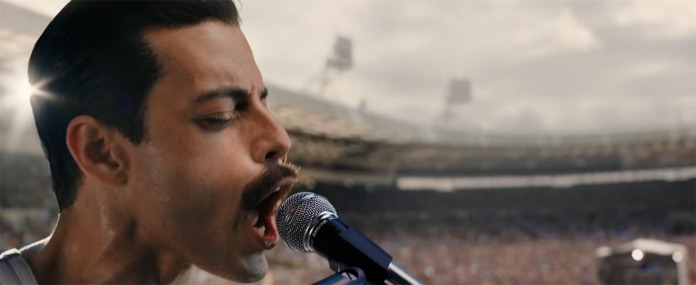
What’s your favorite show on Netflix?
That’s a frequent topic among friends, family, and colleagues as the preeminent video streaming service continues to grow and become a bigger part of our lives. This year’s Techsurvey told us that half our total sample watches Netflix at least weekly. That’s bigger than any other TV network – by far. And expect that percentage to grow when we get the results back from Techsurvey 2019 launching in January.
But once you get beyond all those new Netflix shows, series, and documentaries, some of their most popular programs are “reruns.” That’s right – syndicated TV shows you’ve seen before – in many cases, a number of times. The appeal of old shows like “Cheers,” “Frasier,” and “Twilight Zone” speak to the power and impact of nostalgia – a lesson Netflix just learned the hard – and expensive – way.
While they invest upwards of $6 billion annually in program content, they’re writing big checks for “oldies.” Here’s a case in point, and a cautionary tale about overlooking the appeal of nostalgia. The Ringer’s Miles Surrey reported Netflix recently posted a small notification that the “Friends” catalogue would expire on January 1st.
That led to a deluge of tweets and other correspondence from Netflix subscribers, prompting the company to rethink its decision. In the end, Netflix relented, and issued an updated notification that “Friends” was given a one-year “stay of execution” – for a hefty price.
Netflix had to write a check for $100 million for the one-year licensing fee to WarnerMedia, the rights holder of “Friends.”
That tells us a lot about the value of nostalgia, not just on television but in all corners of pop culture. And it turns out the immense value of evergreen content isn’t just for Baby Boomers. Everyone enjoys going back in the time machine to enjoy old movies, TV shows, and music.
Here’s the way Surrey summed it up:
That emotional tug is costing Netflix and other program suppliers untold millions of dollars, many of which they’re recouping with advertising, subscription fees, merchandising, and social buzz.

Media consultants would likely advise marketers and programmers to sit back, relax, and go with the nostalgic flow. Or as the great philosopher, Tony Soprano reminds us, looking back at the past may not make for the most stimulating of activities. But it sure makes a lot of money.
As we come to an end of another unspectacular year in new music, most contemporary radio programmers – from pop to rock to hip-hop to country – lament the current music scene. Meanwhile, the market for the been-there-done-that, tried-and-true stuff thrives, be it boring or banal. As Yerger wraps up his smart think piece on the cultural trends of then and now, he asks, “At some point when do we stop relying on the past and start using it to shape the future?”
Radio remains conflicted about the power of the past, especially its ability to use it to transform the industry. While other media like TV and movies embrace it, radio is often mired in an uncomfortable world of apologizing for its nostalgic programming – or certainly underselling its value.
And to that end, radio runs away from the glory – perceived or otherwise – of its past. It is a medium that has a remarkable legacy, an amazing history, and countless reasons to celebrate its contributions to pop culture.
Oddly enough, most people heard this music first on a radio – under their pillows, on their workbench, in their cars, or on a boom box at the beach. And while radio is in many cases the source of all these memories, it somehow doesn’t seem able to market or cash in on its vaunted place in the lives of music fans everywhere.
There’s still great magic left in radio – what it has meant to generations of listeners and what it could mean to future consumers. As curated content that is free, ubiquitous, intimate, anseamless to use, there is nothing else like it in the mass media landscape.
Strangely, there’s conversation in the industry about dropping the word “radio,” and replacing it with the broader, more buzz-worthy term, “audio.” I get it. There’s something modern about “audio,” as it encompasses everything from streaming to podcasts to bluetooth earbuds. As we keep reading research that shows how audio consumption is growing, it is tempting to chuck the past and embrace a new brand platform.
But that would be a mistake. “Audio Shack” is lacking. “Radio” is…sexier.
And for proof, note that Spotify, Pandora, Slacker, and SiriusXM all try to be radio.
But there’s only one “radio.”
Look no further than a Queen song that may not be as iconic or as well-known as “Bohemian Rhapsody,” “We Will Rock You,” or “We Are The Champions.”
“Radio Ga Ga” – which the band performed at that famous Live Aid concert at Wembley Stadium in 1985 – may be the ultimate love letter to radio ever recorded. But it’s also an exhortation for radio to recapture its greatness. If there’s ever been an ode this powerful about streaming or podcasts, let me know.
Below is the original video with the embedded lyrics:
Tomorrow, we’ll take a look at the power of nostalgia for radio through the lens of a Millennial programmer with a unique and thoughtful perspective on the music and its generational appeal.
- What To Do If Your Radio Station Goes Through A Midlife Crisis - April 25, 2025
- A 2020 Lesson?It Could All Be Gone In A Flash - April 24, 2025
- How AI Can Give Radio Personalities More…PERSONALITY - April 23, 2025





Spot on, Sir Fred! Better yet, Hear Spot Run. Boomers grew up with the huge radio connection you know so well. Some us even built popular FM stations from the ground up. Audio recall, nostalgia, rhythm & romance are huge, lasting connections. Nobody enjoyed seeing The Jersey Boys, right? It was huge! Just like the live TV hits of classical musicals. Our money is just as good as our kids. We just happen to have more of it, give it and spend it in multiple ways on family, entertainment and stuff we always wanted. How can operators and advertisers be blind (and deaf) to that picture? Rock & Roll is here to stay. Now, combine that with current connection, compelling information and we’ll keep those smart speakers sounding smart with outstanding radio content! Make 20-19 familiar & clean.
Thanks for the comment, Clark.
Too bad other advertisers don’t get that. Since most of radio now refuses to play anything older than about 1975 saying it’s “too old”.
It’s a problem, Kevin, and another way radio continues to cede musical turf to satellite and Internet radio.
The idea of dropping the word “radio” reminded me of years ago, when a classic rocker here in San Diego, decided to drop the word “point” from their dial position to the technologically-sexier (or so they apparently thought) “dot.” So “103-point-7” became “103-dot-7.” I don’t know how many other stations across the country adopted the “dot,” but in San Diego it was just the one and it seems it didn’t last long.
I can’t really fault them for giving it a try–none of us knows which new term or buzzword will take and become part of the lexicon (see “googled,” “app,” “facebook,” “wiki,” and, of course, “blog,” to name a few), but suffice it to say for now, I wouldn’t break the budget buying a gravestone for “radio”–either for the term or the industry.
I was actually part of that “dot” experiment. In a “Dot Com” world, it cewrtainly seemed like a good idea at the time. It reinforces why the industry shouldn’t mess with “radio.” Thanks, Dave.
I reread this column a couple of times and the more I ponder it, the more I realize how complicated it is.
First, a point of info – this has been a lackluster year for new music on mainstream radio formats, but not so for many of the subsets and niche genres never played on those major formats. A Budweiser distributor once told me that craft beer was a vexing problem because it was taking a significant and bigger and bigger chunk of its business, but the biggest brand only had 2% of the market, so it was very hard to combat. Sort of death by 1000 cuts. Maybe radio should experiment with really different kinds of music and approaches on those translators.
As for nostalgia, it could be that radio needs to modernize its approach to it. Friends with no ads that can be binge watched is a different experience than 18 minutes of show plus 12 minutes of spots one show at a time. Seriously. If people are flocking to old stuff everywhere but radio, maybe the way radio is presenting it needs a reset.
This isn’t the first time I’ve whined about radio mailing it in when it comes to programming/imaging, but when the medium full of classic rock/oldies/adult hits stations (really just oldies for gen Xers) can’t cash in on the nostalgia craze – its doing something wrong. Maybe the answer is in Netflix ponying up the $100 mil to give its audience what it wants. Hello…McFly!!!!
Bob, thanks for the giving this one thought. It IS a conundrum when you see so much success pinned on nostaglia, and radio fighting the trend like it’s headwinds. You are probably correct that execution and investment on the part of radio is an issue, but so is the lack of embrace at so many different levels. Thanks for adding to the conversation.